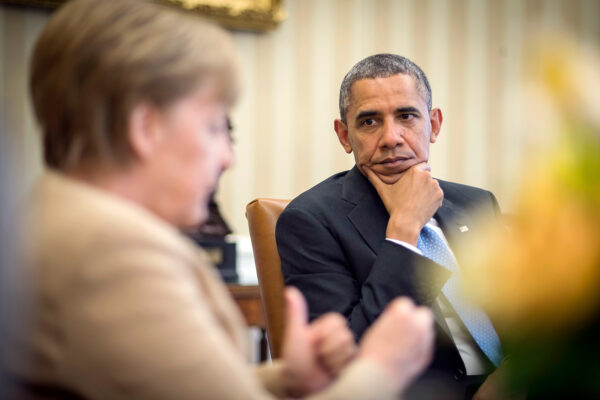
Robert D. Kaplan complains in The American Interest that Europe is lacking the sort of bold leadership supposedly needed to deal with the continent’s myriad economic and strategic challenges.
Whereas Asia has “dynamic and resolute” leaders in China’s Xi Jinping, India’s Narendra Modi and Japan’s Shinzō Abe, Europe has “grey, insipid ciphers who stand for little except finessing rather than dealing with the next crisis and the next,” according to Kaplan.
Such leaders cannot be expect to deal with the challenges of Russia and the Middle East.
His characterization is unfair. (Not to mention his description of Abe, who has put off making tough decisions on the economy for two and a half years now, as “resolute”!)
Don’t admire the big man
First, Kaplan falls victim to admiring the “big man,” something I cautioned against in February.
Although I criticized Western admirers of Egypt’s Abdul Fatah Sisi and Russia’s Vladimir Putin at the time, the basic arguments hold against democratic strongmen. Countries whose prosperity or stability hinges on the ability of one person have a big problem.
Countries shouldn’t want “strong leadership”. They should want strong citizenries and institutions. Europe has both.
If anything, the fact that European countries have critical, informed citizens and representative democracies is exactly why the continent doesn’t produce many “strong” leaders.
In multiparty democracies with strong bureaucracies, independent judiciaries and empowered local governments, politicians cannot simply impose their will on the whole country and that is a good thing.
What Kaplan sees as a political weakness is the strength of European civil society.
Young and ambitious
At the same time, Europe is capable of producing ambitious leaders.
Far from grey, the average European leader is around fifty years old.
Far from insipid, Italy’s Matteo Renzi (40) and France’s Manuel Valls (52) are forward-looking leaders who are trying hard to convince their left-leaning countries and parties that liberal economic reforms need not weak social democracy.
David Cameron and Mark Rutte (both 48) are leading liberal-leaning coalition governments in Britain and the Netherlands that advocate freer trade and European Union reform to take the wind out of the Euroskeptics’ sails.
Donald Tusk (57), Poland’s former prime minister, closely guards European unity as the new president of the European Council.
Finland’s Alexander Stubb (46) is responding to Russia’s aggression in Ukraine by drawing his traditionally neutral country closer to its Scandinavian neighbors and the West.
Lithuania’s Dalia Grybauskaitė (59) is among Putin’s most outspoken critics.
Collective
If this youth and vigor doesn’t always translate into decisive European policy, it is because Europe — as Kaplan helpfully reminds us — is a collection of states. It is difficult to get 28 countries, each with their own economic and foreign-policy imperatives and priorities, moving in the same direction. Yet more often than not, they manage to do so.
It isn’t always pretty and it’s hardly ever done quickly, but that’s not due to an absence of “leadership.” It’s because of the way the European Union was designed.
If Kaplan finds that unimpressive, he should join the chorus of Europhiles calling for ever-closer union rather than blame government leaders who are taking considerable political risk trying to do the right thing.
